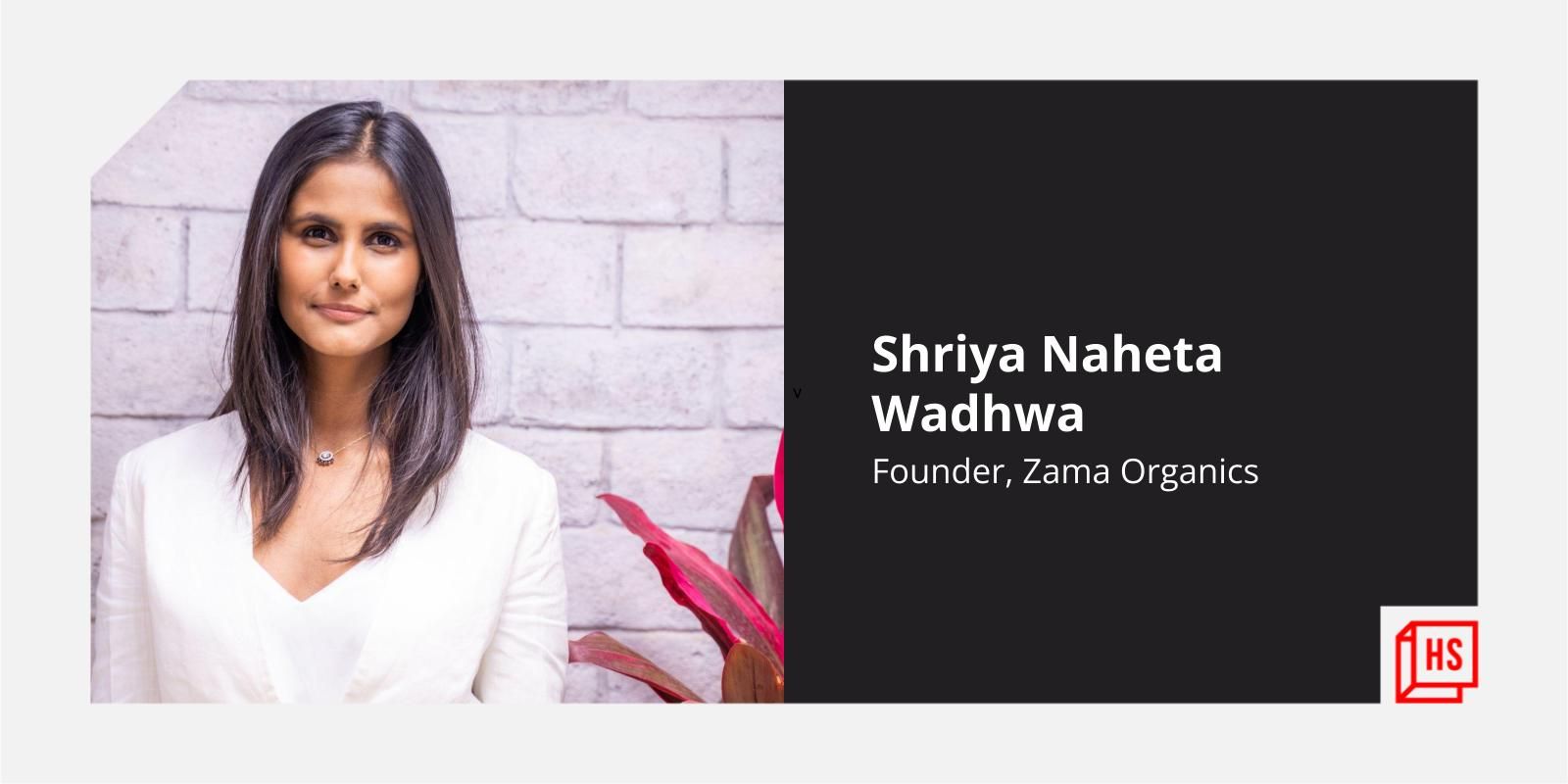This woman entrepreneur is making organic food more accessible through her D2C grocery brand
Founded by Shriya Naheta, Mumbai-based Zama Organics follows a farm-to-fork model to make organic food more accessible to people at the click of a button.
When Shriya Naheta Wadhwa returned to India in 2015 after graduating from the University of Southern California (USC) in Los Angeles, USA, with a degree in International Relations and Global Business, she realised that most people have little to no access to the organic produce grown across the country.
Determined to solve this, she spent the next 1.5 years researching and learning about organic produce, farming, and types of products that grow in India, and spoke with farmers on how to collaborate and promote a sustainable future. It led to the birth of in 2017.
“I founded Zama Organics with a vision to make a range of organic food accessible to people at the click of a button. India is a diverse country with a wide variety of organic produce that I felt was not easily available. Within a short span, we have managed to build a large farmer and artisan network who grow and/or produce a variety of clean food products,” Shriya tells HerStory.
Starting up
Shriya’s eureka moment arrived when she realised the variety of produce grown in the Indian subcontinent. The Indian topography, according to her, offers quality clean produce that needed to be more accessible to people.
“One of the challenges during the initial stages was organising the supply chain since organic items have a shorter shelf life and spoil easily due to spoilage and infestation or storage and handling issues. I learnt this the hard way and struggled to meet delivery deadlines. We had to come up with solutions across the board — from logistics to storage to packaging — with our source location in mind,” explains the 28-year-old entrepreneur.
Mumbai-based Zama Organics focuses and contributes to the overall health and wellbeing of the community by promoting clean and green eating.
In fact, this vision was key for Shriya when she was building the startup’s team.
“My initial hires were through referrals and recommendations. Later, we tapped into IIM and other college networks. We wanted everyone in our team — from core to delivery — committed to Zama's vision of a healthier tomorrow. At present, we are a team of 90 people who are passionate about food and its impact on the environment,” she says.

Shriya, Founder, Zama Organics
Building a network of farmers
The startup’s focus is on building a healthy grocery brand, which supplies clean and organic produce to consumers.
What helped Zama was having a strong network of farmers and farmer groups from whom it sourced products such as veggies, fruits, spices, cereals, grains, and more. In addition to that, the team also works with artisanal makers for other products such as bread, pickles, among other staples.
“Since inception, we have seen exponential growth in the demand for organic food. The unprecedented health crisis has further the highlighted the importance of mindful eating and holistic well-being. The coronavirus pandemic accelerated what we believe was a growing segment before the pandemic — the conscious Indian consumer who opts for healthier, cleaner, and more traceable food options. Consequently, people are taking deeper interest in their food beyond viral trends, focusing more on what they’re putting into their bodies, opting for locally sourced clean food, and exploring what true nourishment entails,” says Shriya.
Market and expansion
According to an EMR report, the organic food market was worth $849.5 million in 2020. In 2021, this grew at a CAGR of 20.5 percent, and by 2026 this market is expected to be worth $2.6 billion. Startups like Ninjacart, BigHaat, and others operate in this space.
Speaking of how Zama is different, Shriya says, the startup is focused on brand-building, creating trust, and developing a transparent supply chain as we grow.
She explains, “We have an online presence through our website that caters to consumers in Mumbai while also extending to select brick and mortar stores across 16 cities. Our clientele is a mix of B2B (restaurants and cafes), private labels (ecommerce), and B2C (doorstep delivery via mobile app and website). Some of these include Saukhyam in Goa, Good By Nature in Pune, The Roots in Delhi, among others.”
Customers can place their Zama orders on its app, website, and via WhatsApp.
The founder claims that the startup’s revenue has been doubling on a year-on-year basis since its inception, and that it is witnessing an upward trend as the number of conscious and informed consumers increase.
Funding and future
Recently, Zama Organics raised a Series A funding round, led by angel investors like Ajay Kaushal (BillDesk), Arjun Lamba (Guardian Advisors), and Jay Mehta (Mehta Group), among others.
With the current capital, the startup plans to focus on further building the brand, expanding its geographical footprint, and strengthening its network, along with technological implementation and hiring.
At present, the team is focused on expanding its geographical footprint and expect to see a 3X revenue increase. Although the organic market is still niche, it is growing at an accelerated pace as consumers are becoming conscious and aware.
“While organic products do and probably will always come at a premium to conventional, we hope the gap reduces with larger volumes and more demand. We currently have warehouses only in Mumbai, through which we service the Mumbai and Pune region,” says Shriya.
Edited by Saheli Sen Gupta













